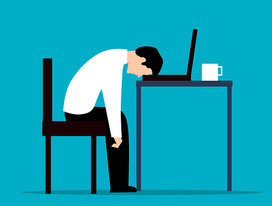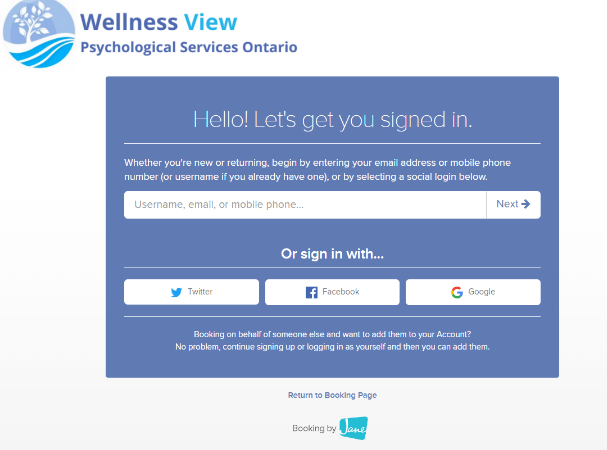|
Online or virtual psychotherapy has been around for many years. In 2020 it became extremely popular (we all know why). I wrote about the benefits of online therapy in 2021 (read my blog post here), but I’m writing about it again because now I have four years of full-time experience with it. Honestly, I love providing online therapy and I plan to keep doing it. You can receive online therapy by using a video conferencing app on your computer, tablet, or phone.
Online therapy isn’t for everyone, and some people prefer in-person therapy sessions. There are psychologists who are now providing in-person sessions, but many (like me), have remained exclusively online. Are you trying to decide if online therapy would be a good fit for you? Here are some reasons to stay home and give online therapy a try! Psychologist Peter Lewinsohn proposed the psychological intervention in 1974. It helps people increase the frequency of pleasurable experiences, reduce avoidance, solve problems, do things to feel mastery and accomplishment, and helps people act in ways that are consistent with their values. (Kanter et al., 2012).
The goal of Behavioural Activation is to improve mood, reduce unpleasant symptoms like depression, and increase one’s quality of life. Although Behavioural Activation was created as a treatment for depression, research has supported its use for multiple conditions.  Image by Arek Socha from Pixabay Image by Arek Socha from Pixabay This post was updated on March 29, 2024. There are many reasons why I don't give free, 10-minute consultations.
 Image by Petra from Pixabay Image by Petra from Pixabay Dear Markham Psychologists Clients, Thank you so much for bearing with me through this planned transition! You have trusted me with your psychological service needs, and I hope to make these changes as seamless as possible. As always, my focus is on helping you to feel better and these changes will allow me to focus on helping, rather than on administrative tasks. If you have any questions or concerns, please email me and we can discuss them. Sincerely, Dr. Candice RECORDS TRANSFER TO WELLNESS VIEW On August 28, 2023, if you are one of my clients, your contact information will be transferred from Markham Psychologists to Wellness View Psychological Services Ontario. I will remain the custodian of your therapy notes, reports, and appointment records. Markham Psychologists will retain your billing records on their Jane App online booking platform. I will attempt to download this information manually, but this will take a few months. You will not be able to access your old billing records from my new Jane App. Update August 27, 2023: I have obtained a copy of your billing records. A report of your billing history may be compiled manually. Please request a billing report only if necessary (e.g., when requesting a copy of your clinical file). Please allow a few days to compile the report. After your first appointment is booked, you will receive an email invitation to your Wellness View Jane App Account. You will be asked to create a username and password (please remember this information or save it to your browser if you use a private device). You can also log in with your Twitter, Facebook, or Google credentials. Bookmark and use this link to check your account and manage your future appointments, https://cbpsych.janeapp.com/login.

Hushmail for Healthcare is an encrypted email service that can be used by healthcare providers. Your confidential healthcare information must be protected under PIPEDA and PHIPA laws. This means healthcare providers cannot send confidential information over the internet that is not encrypted or protected in some way. By using Hushmail, I can email you confidential information (e.g., reports, letters, or completed forms).

No matter whether you call it online therapy, e-therapy, or virtual therapy--it's here to stay. I have fully embraced online therapy as have many people who want psychotherapy. Therapists can choose from many online therapy platforms that provide encrypted video to protect your health information as required by PIPEDA and PHIPA laws. For Wellness View, I chose Zoom for Healthcare because of its encryption, ease of use, and because many people are already familiar with Zoom. Zoom for Healthcare has more safeguards than the free version, it is used by many health care providers in Canada, and the recording function can be disabled for meetings (recording is disabled for Wellness View appointments).
 Stressed employee Stressed employee
Feeling overworked, having conflict with managers, and experiencing low job satisfaction can all cause stress and anxiety. Talking to friends, family, or even your psychologist can help you feel better, but you may need to do more to change your situation. Here are five tips for dealing with work-related stress.
1. Learn now to say no. Saying no to things that are voluntary or unnecessary will free up your time to do things that improve your mood. Having time for yourself and your interests is beneficial for your mental health (you can read more in this blog entry). Saying no can be difficult if you focus too much on pleasing people. If you learn assertiveness skills and practice them, you will find it easier to say no. If you don’t know something or understand something, what do you do? The first thing I do is look it up. In the past this was difficult and involved going to a library, buying a book, or calling someone who had the information you wanted. Today, because of technology, so much information is just a click away. But how do you sort through all the information on the Internet about psychology? Sure, you want to live a better life and feel better, but what source should you use and whose advice should you take?
Fortunately, if your psychologist uses psychoeducation, as I do, they can provide you with the information you need from reliable sources. Psychologists may recommend books, websites, or organizations that have information that could enhance your therapy sessions. For most clients, I provide psychoeducation in the form of handouts, tracking forms, fact sheets, brochures, or self-help modules. These are given as therapy homework. Therapy homework gives you more bang for your buck and provides more therapy benefits in-between sessions. You will make much more progress in therapy if you practice techniques regularly outside of your therapy sessions. Here are five examples of therapy homework: CBT stands for Cognitive Behaviour Therapy. It's a popular therapy that was created by Aaron Beck in the 1960s (1). In the 1950s, Albert Ellis created Rational Emotive Behaviour Therapy (REBT) that has some similarities and differences from CBT (2). I tend to use a mixture of both with my clients. CBT is the most researched therapy approach (3). In treatment studies, CBT has been beneficial for individuals experiencing depression, eating disorders, obsessive compulsive disorder (OCD), posttraumatic stress disorder (PTSD) and many other mental health conditions (4). CBT has been helpful for individuals using in-person therapy, online therapy, self-help books, and even in online self-help programs.
|
AuthorCandice Bovell, Ph.D., C.Psych.
Clinical Psychologist Blog posts
~ Why is Online Therapy so Popular?
~ 100 Activities for Behavioural Activation ~ Why Don't you Give Free 10-Minute Consultations like Other Therapists? ~ Welcome Markham Psychologists Clients Starting September 1, 2023 ~ How to Book Appointments with Dr. Candice Using Jane App ~ How to Read Emails Sent Through Hushmail ~ How to Join a Zoom for Healthcare Appointment ~ How to Deal with Work Stress-5 Tips ~ 5 Types of Psychotherapy Homework ~ 5 Tips for CBT Success ~ Interested in Trying E-Therapy? ~ E-Therapy is Great for the Field of Psychology ~ Psychologist Recommended Resources for Coping with the COVID-19 Pandemic ~ Activate Your Mood with Behavioural Activation ~ Psychologist, Psychiatrist, or Psychotherapist...What's the Difference? ~ Thinking About Using Thought Records ~ Thank Goodness for Gratitude Journals! Archives
May 2024
Banner Photo by Diego Torres on Pixabay
|




 RSS Feed
RSS Feed